More than 300 passionate wilderness advocates poured into the Salt Lake City Main Library for the People’s Hearing on the San Rafael Swell last night. The auditorium filled to overflowing as Utahns showed up to call for greater protection for the San Rafael Swell and surrounding wild lands.
Speaker after speaker described how the Emery County Public Land Management Act (H.R. 5727/S. 2089) fails to do justice to the globally significant wild lands in the San Rafael Swell and nearby Labyrinth and Desolation Canyons. The Act could determine the future of 1.5 million acres of scenically spectacular wildlands that are also laden with cultural artifacts, including extraordinary rock art.

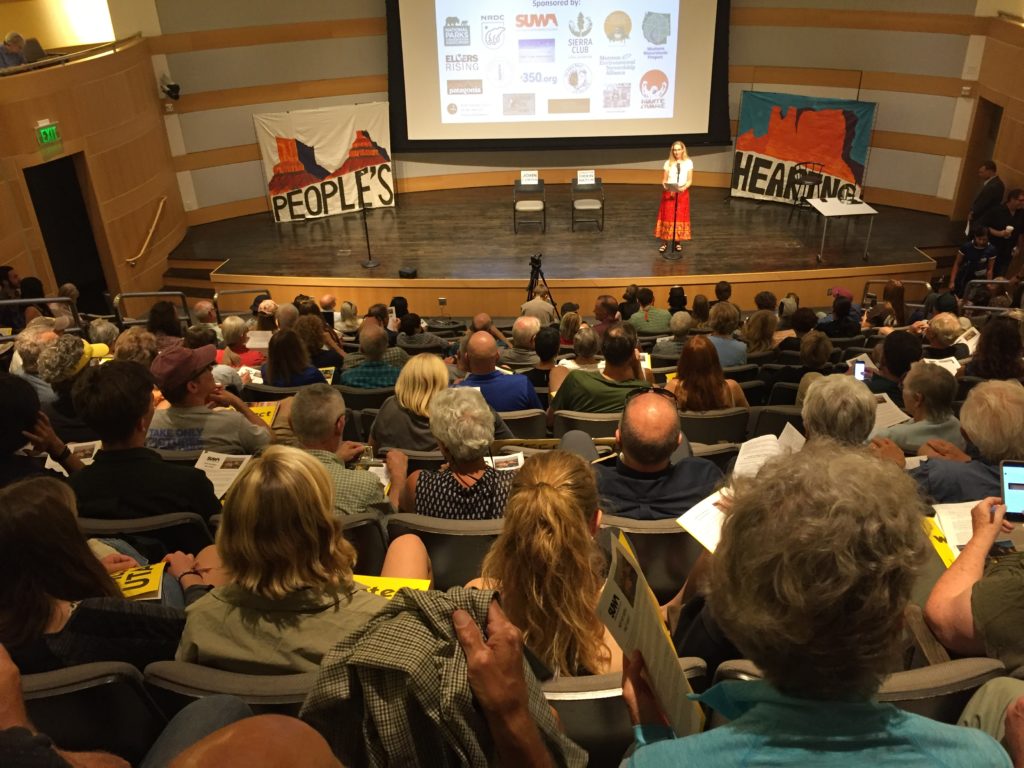 |
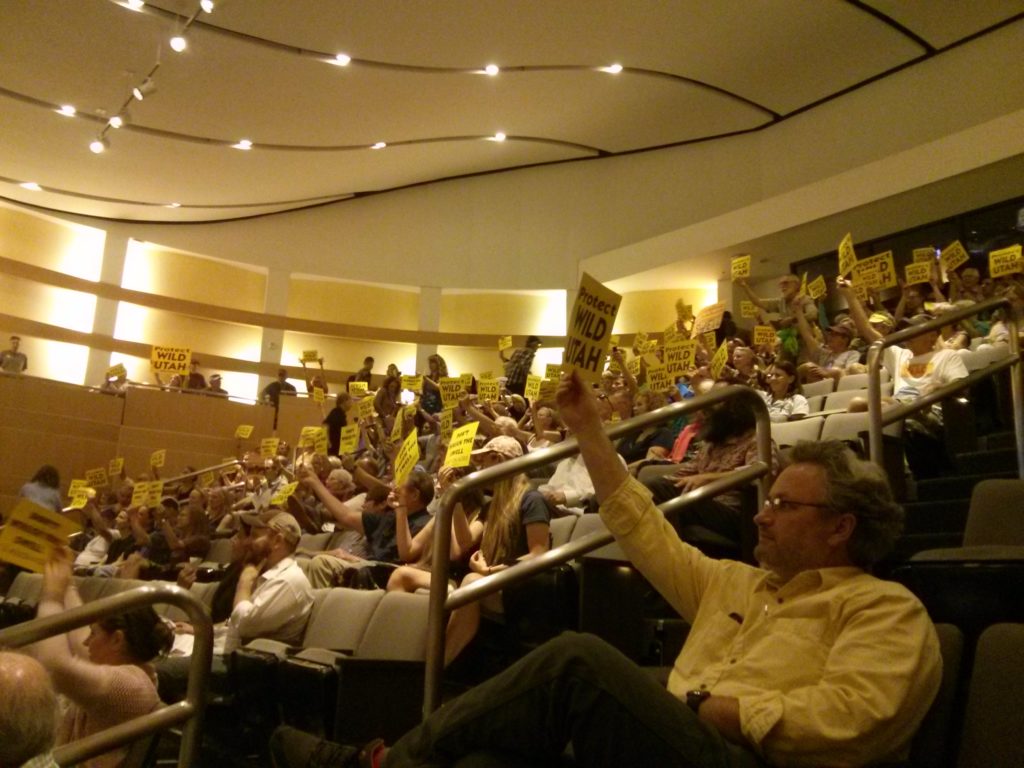 |
Frustrated by the failure of Senator Orrin Hatch and Representative John Curtis to provide a meaningful opportunity for people outside Emery County to help shape a public lands bill for the region, the Utah Wilderness Coalition and fifteen other organizations hosted the “People’s Hearing” so those outside the county could express their views. Senator Hatch and Representative Curtis were invited but declined to attend.
Scott Groene, Executive Director of SUWA, started off the evening by describing how the proposed Emery County bill is actually a step backwards for conservation. “The bill is worse than the status quo,” said Groene. “[It] would designate less wilderness than already has protection as Wilderness Study Areas or Natural Areas. Over 900,000 acres of deserving wild lands are left unprotected as wilderness. At the same time, the bill makes off-road vehicle abuse worse by enshrining 800 miles of off-road vehicle routes, effectively perpetuating an old, illegal and overturned travel plan.”
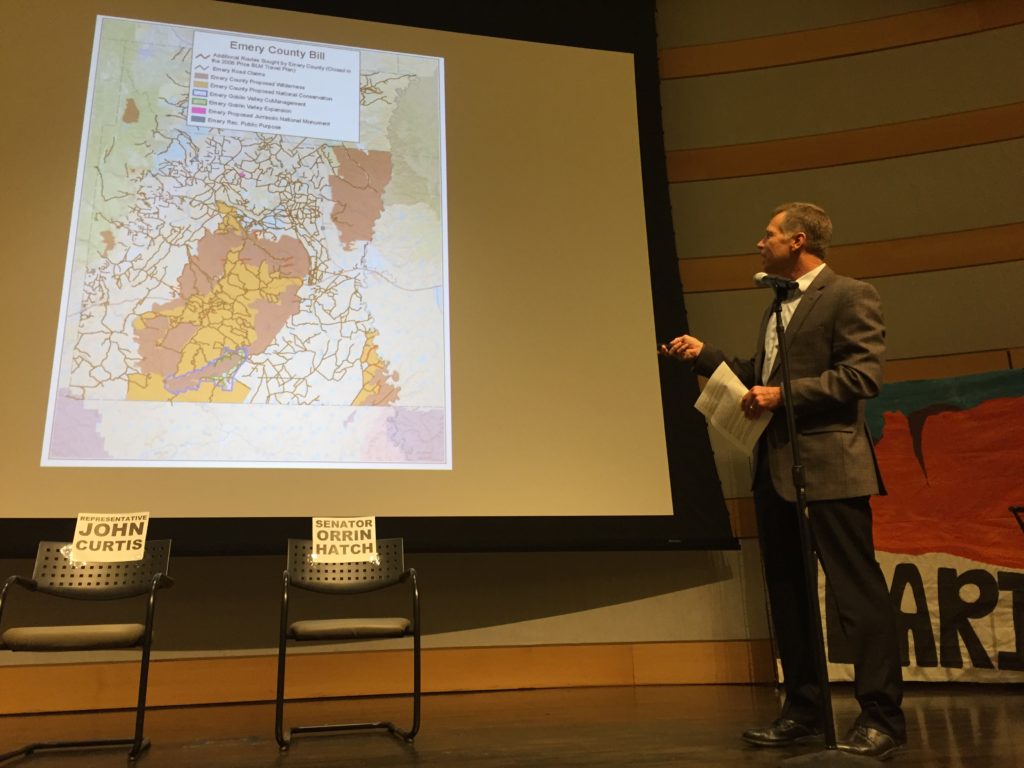 |
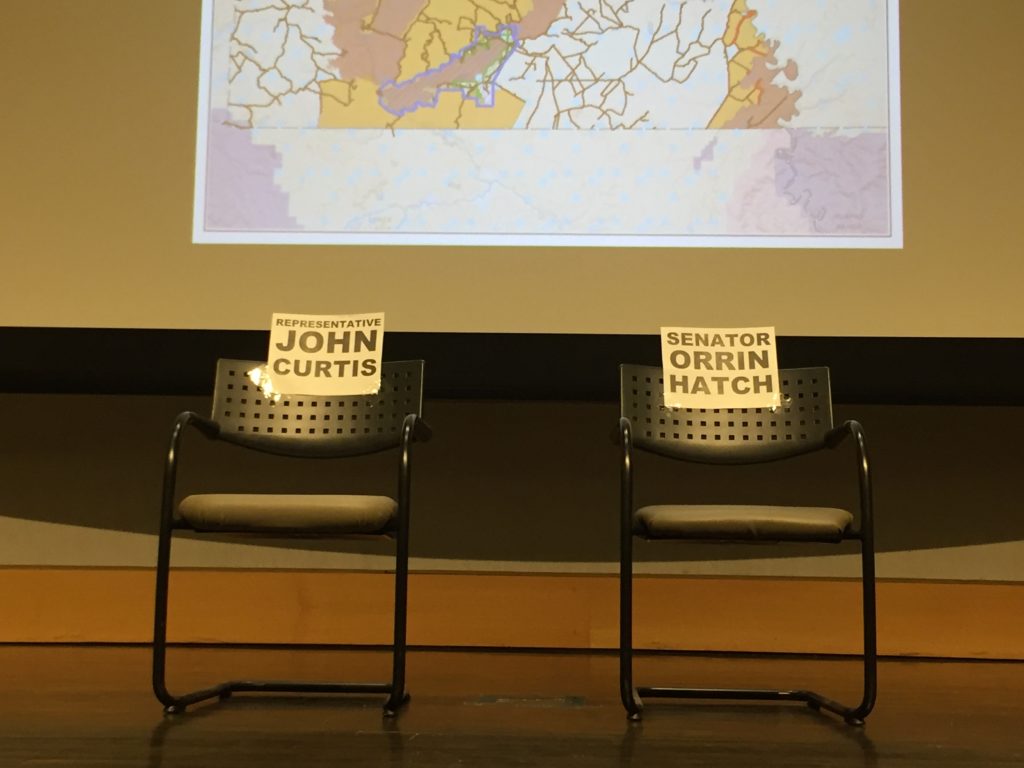 |
Salt Lake City Mayor Jackie Biskupski decried the Emery County bill as a “long-term plan to rip up this landscape” and criticized the Utah delegation for failing to provide opportunities for public input. “Without this People’s Hearing happening here tonight,” she said, “there is no public forum on this issue.”
Shaun Chapoose, member and former chairman of the Ute Tribal Business Committee, described the bill as “another attack on our tribal lands and resources. Another modern day Indian land grab just like Congressman Rob Bishop’s Public Lands Initiative from a couple of years ago.” He added, “The Ute Indian Tribe is yet another voice that did not get a seat at the table when they were drafting this bill. We found out about the bill in the days before it was introduced.”
Chapoose, who also encouraged the crowd to become good stewards of the land they occupy, received a standing ovation from the crowd.
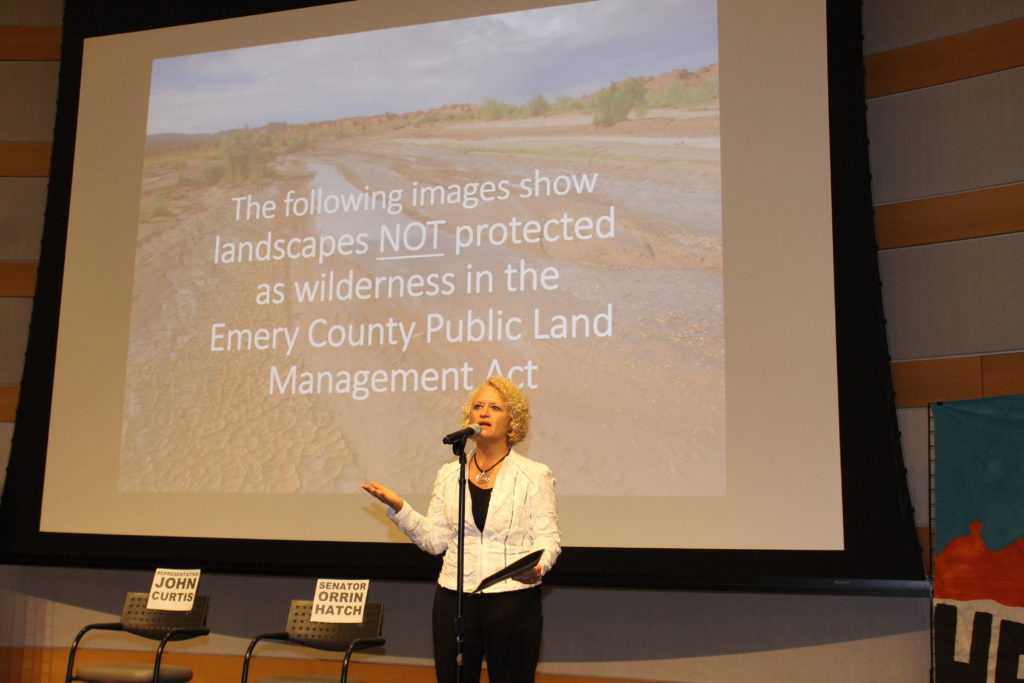 |
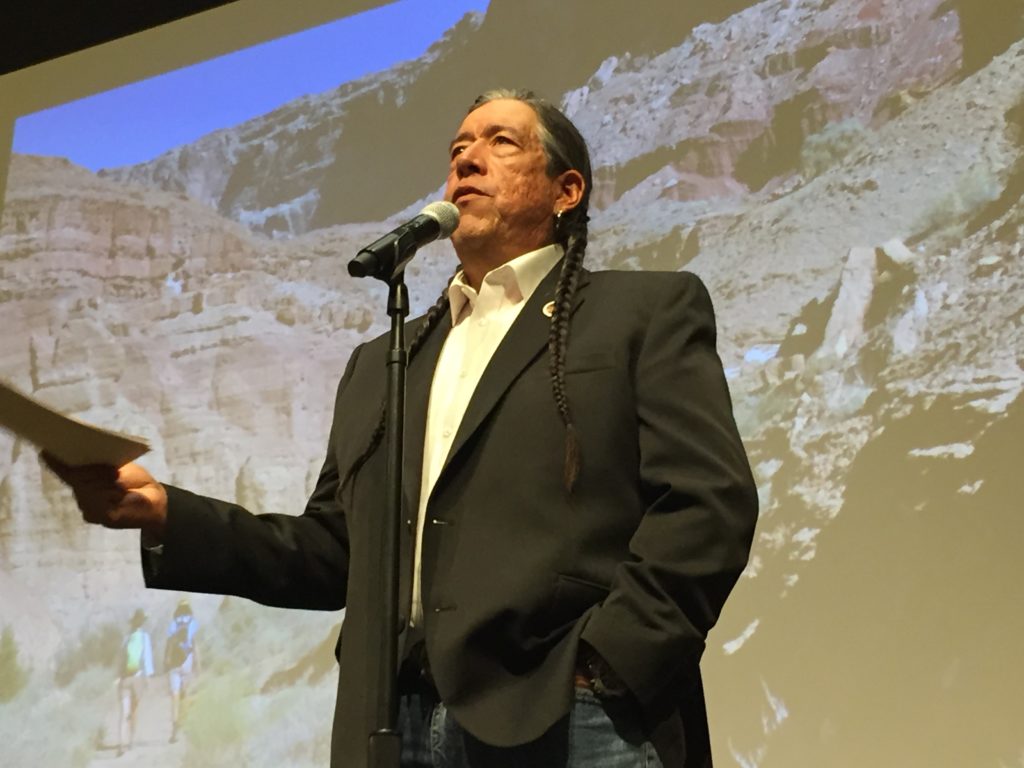 |
“In the morning when you get up, when the sun is just rising over the mountains, when the animals are already up: how many people take that for granted? If we do not take care of the land, people will look back in the future and say people should have done something to take care of this land.” —Shaun Chapoose
Lauren Wood, a third generation river runner who helps her family operate Holiday River Expeditions, an outdoor adventure company, said the company was not asked for their input, despite the fact that they have been based primarily in Emery County since 1973 and operate rafting and biking trips in the San Rafael Swell, Desolation Canyon, and Labyrinth Canyon—all wild areas affected by the bill. “They speak of public process but those cherry-picked to represent the ‘public’ do not represent the whole, and the whole is exactly what we need if we hope to have a chance in this beautiful and very climate changing state.”
“You can’t protect the lower drainage of a river and not protect the canyons and creeks that drain into it; the impact to the resource is cumulative. Land parcels, like stakeholders, can’t be cherry-picked if we want a chance for a legitimate future for wilderness or communities in our backyard.” —Lauren Wood
Dennis Willis, who worked for over 30 years as a rangeland, recreation and wilderness planner with the Bureau of Land Management in the region, called the bill “a minimalist approach to wilderness.” Willis described how the baseline for the bill was not an authentic assessment of how many acres of wilderness-quality lands actually exist in Emery County, but a “totally discredited, bogus and flawed inventory” from the 1980s. Willis decried the Utah delegation’s complete deference to the local county commission.
“The local voice is important, but it shouldn’t be the only voice. Yellowstone should not be managed by residents of Cody, Wyoming.” —Dennis Willis
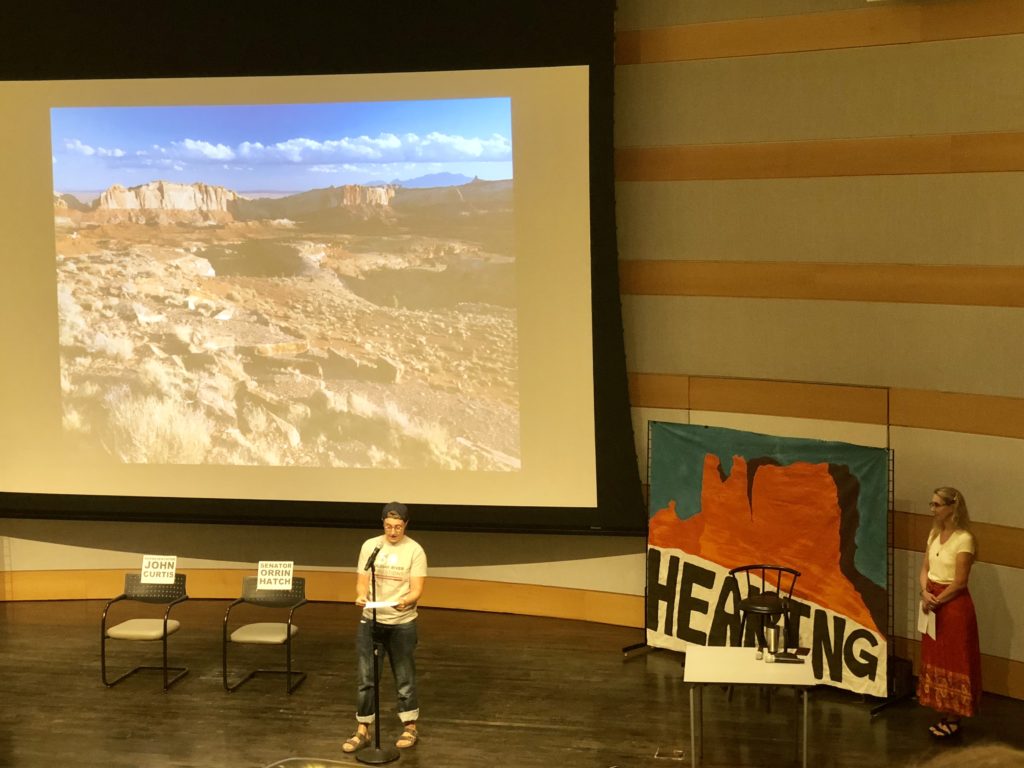 |
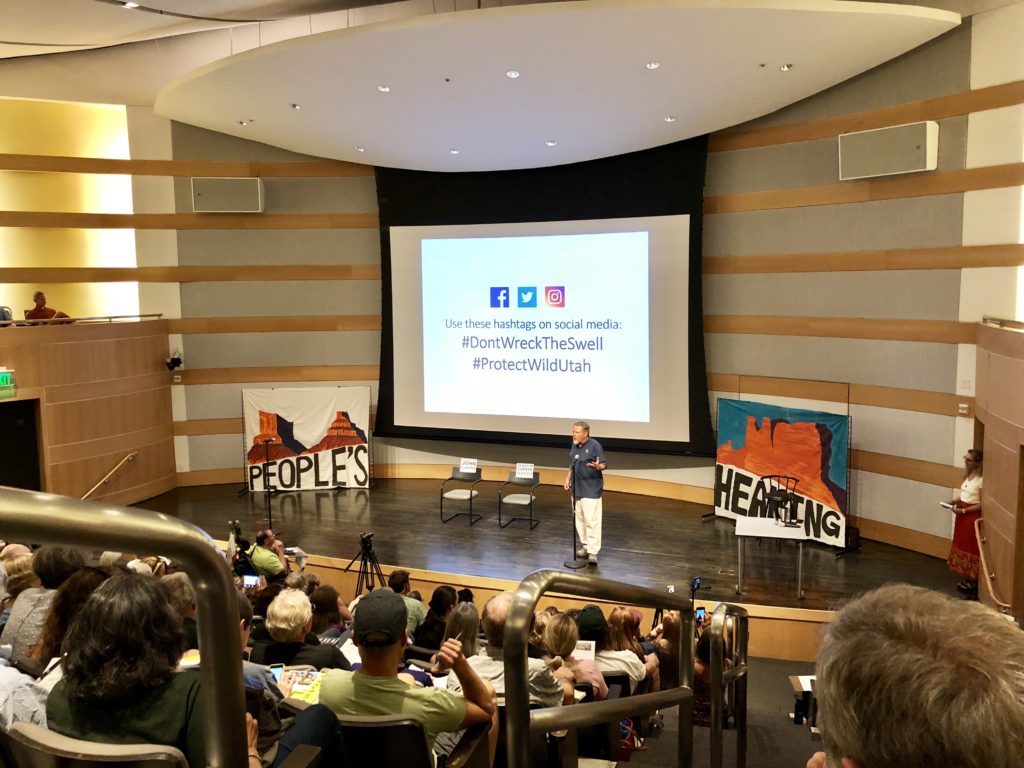 |
Jerry Spangler, a professional archaeologist and executive director of the Colorado Plateau Archaeological Alliance, described how the bill will irrevocably damage archaeological sites in the area. “They want to permanently designate vehicle routes as open without doing the surveys necessary to find out if those routes will harm archaeological sites. Yet we know from past experience that hundreds and hundreds of sites could be harmed, and the courts have ordered them to complete inventories.” Spangler highlighted the Molen Reef area, a landscape rich in Native American rock art, that the bill would throw open to oil and gas leasing. “Only 1% of the area has been inventoried,” he said.
“The BLM has never gone out and looked. If they did, they would find a wealth of very important rock art sites. You can’t manage if you don’t have that information.” —Jerry Spangler
Samuel Graham, an immigrant from Venezuela who made Utah home “to be closer to the clarity of spirit which the desert provides,” said “for constituents like me, public lands are the only place we can escape the demands of the city.”
“Originally, my family and I fled Venezuela, a country which lost the moral battle for its people. The first class I attended was civics, where I learned about the values of America and the symbols that represent those values: Statue of Liberty for diversity, our constitution to empower people, the vast untouched West to represent the spirit. Now the battle for America’s morality is here and it starts with protecting our public lands.” —Samuel Graham
Robert Davies, physicist and climate change educator, detailed how the bill failed to consider the need to protect large landscapes to help avoid, and mitigate, the impacts of climate change. “Much of the damage we have done cannot be undone. But so much damage yet to come can be prevented. We know how: species need habitat,” said Davies. “Astute public policy would keep this habitat, and the whole of the Swell, intact and unbroken.”
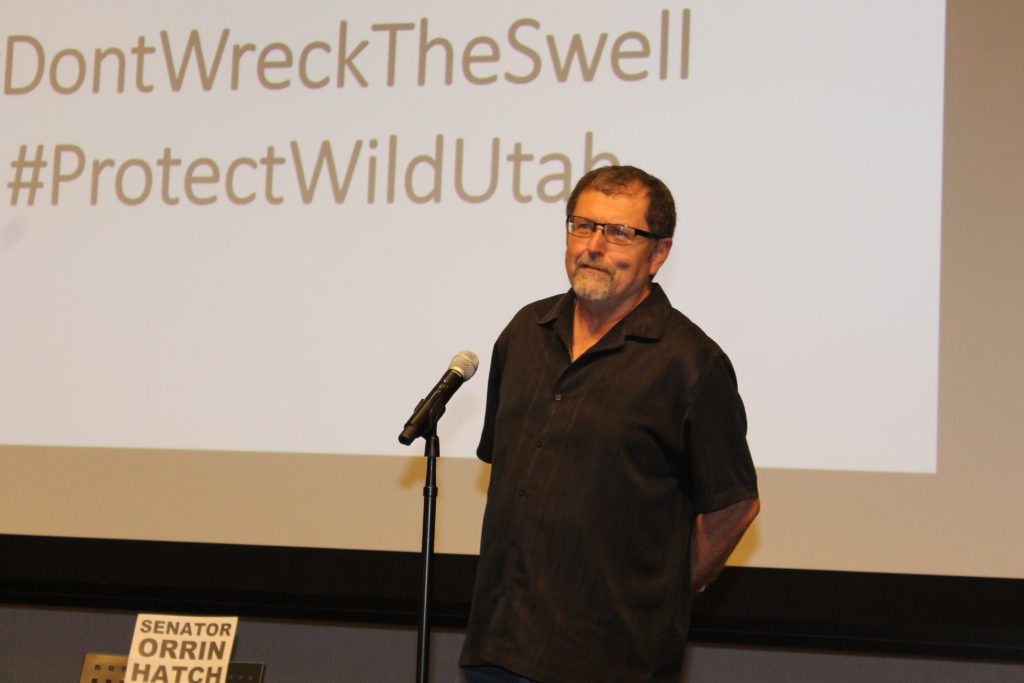 |
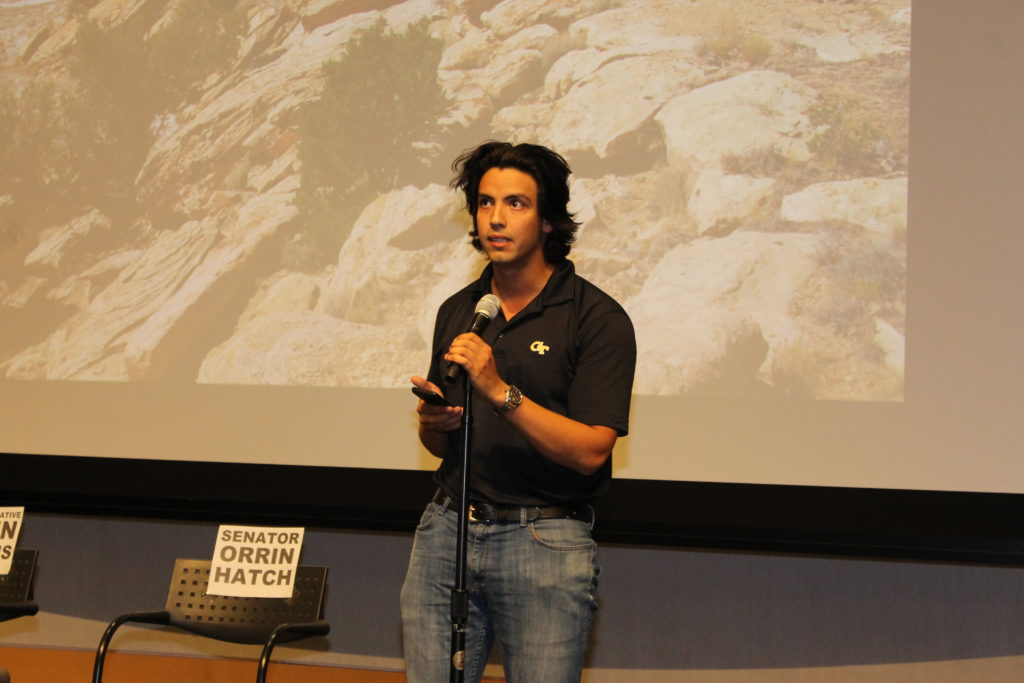 |
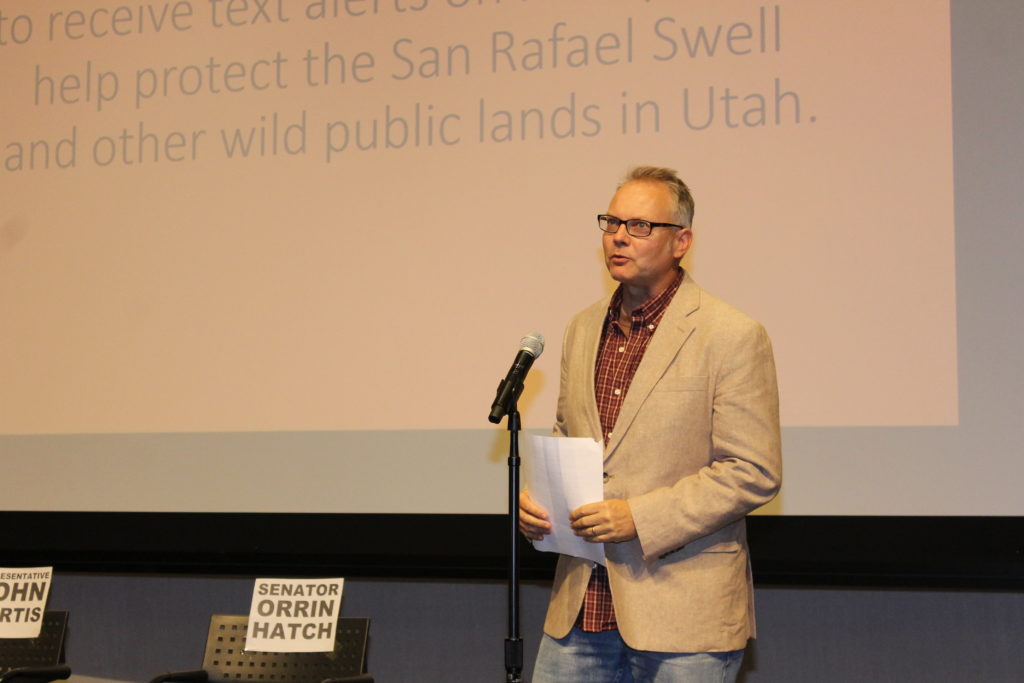 |
Many more individual citizens spoke on behalf of protecting the San Rafael Swell. A few highlights:
“These lands are why people live here, why people come here. We don’t have a coal plant on our license plate. We have an arch and a skier.”
—Peter Jensen
“Like other redrock pilgrims, I’ve run Desolation Canyon, I’ve hiked down Muddy Creek with my family. I’ve clambered through slot canyons sliced through the Reef. I’ve come upon wild horses at Cedar Mountain on my way to camp on the Moroni Slopes. I’ve photographed the Black Dragon pictograph and that universe of Native spirituality pecked into the cliffs at the Rochester rock art site. This bill does not adequately protect these astonishing landscapes.” —Stephen Trimble
“I want to speak for the people who inhabited the Swell a long time ago and who left behind galleries and galleries of irreplaceable rock art. The Emery County bill gives no protection for this precious part of all our heritage.”
—Diane Orr, Utah Rock Art and Research Association
“I would like to ask Senator Hatch and Representative Curtis, have you seen the San Rafael Swell? When you are out in the quiet and solitude of Mother Earth, do you feel the divine spirit? I ask you to search your soul and see if this bill should be set aside.”
—Ty Markham, Mormon Environmental Stewardship Alliance
* A special thanks to Kirsten Allen, Executive Director of Torrey House Press, for serving as the emcee for this event.
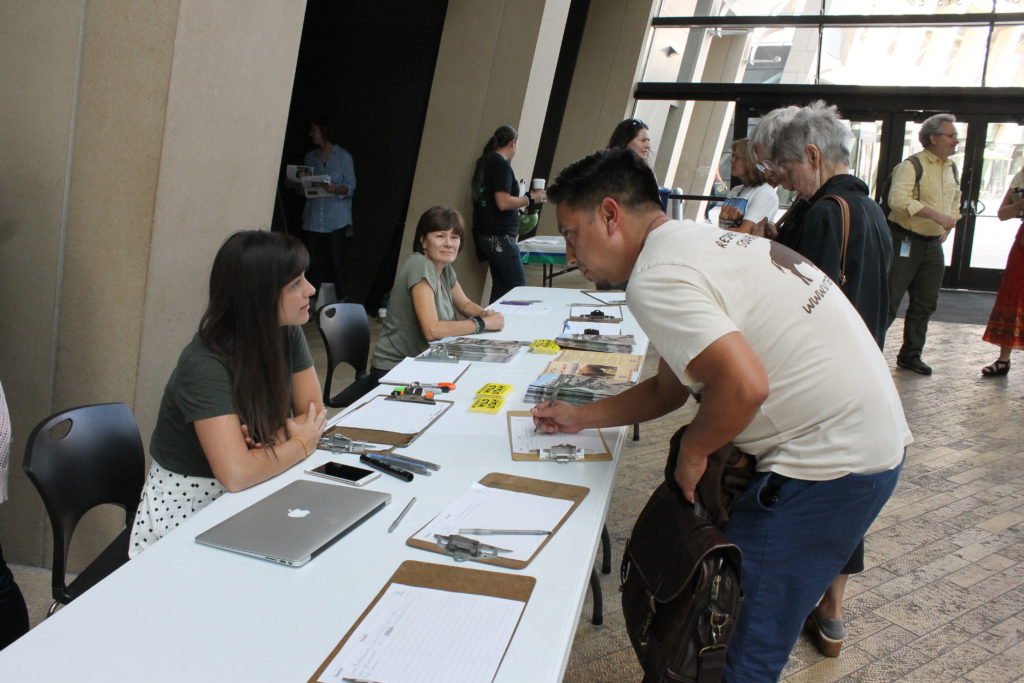 |
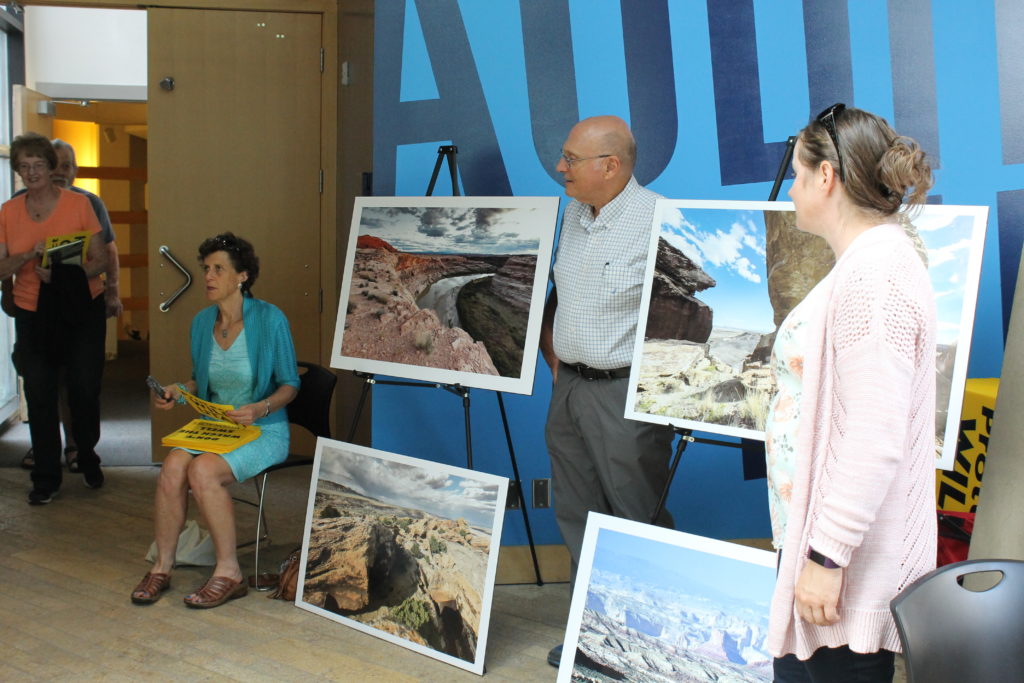 |

